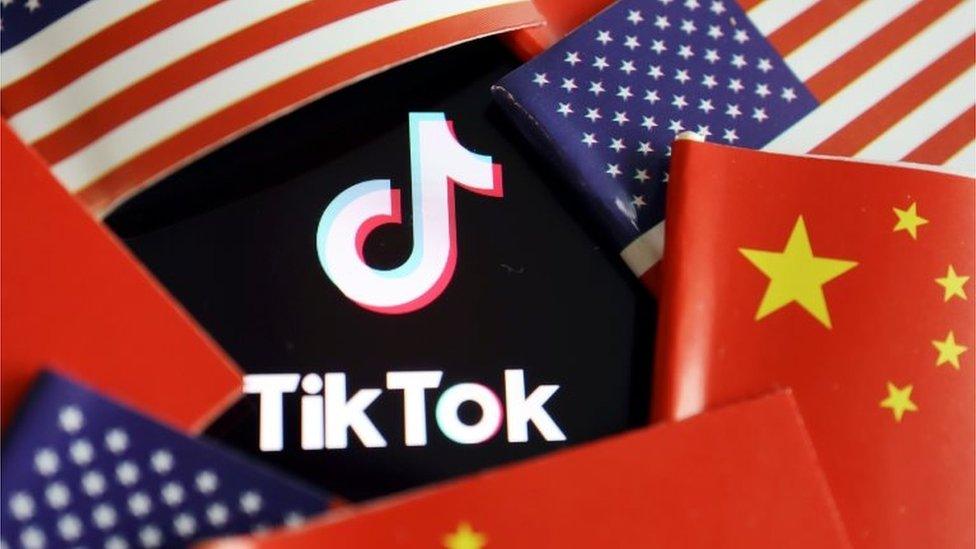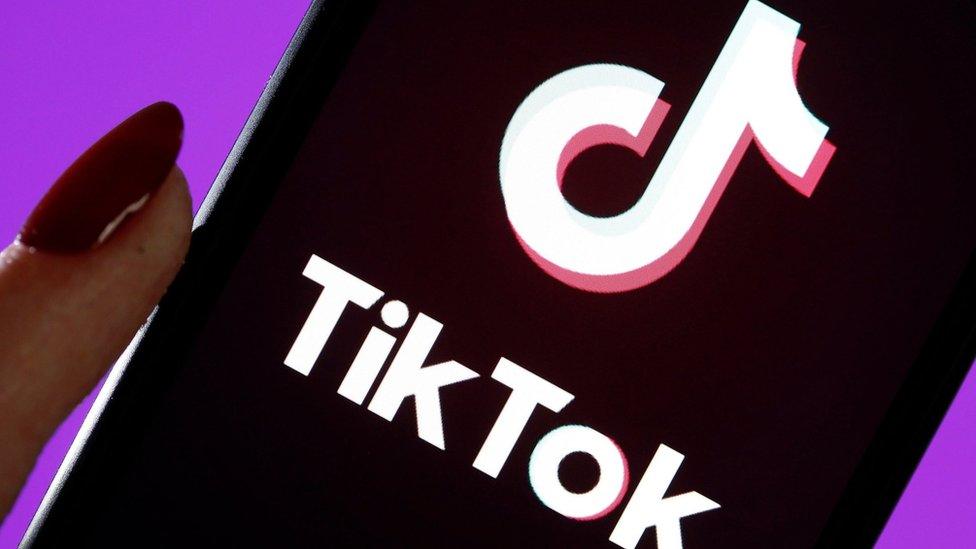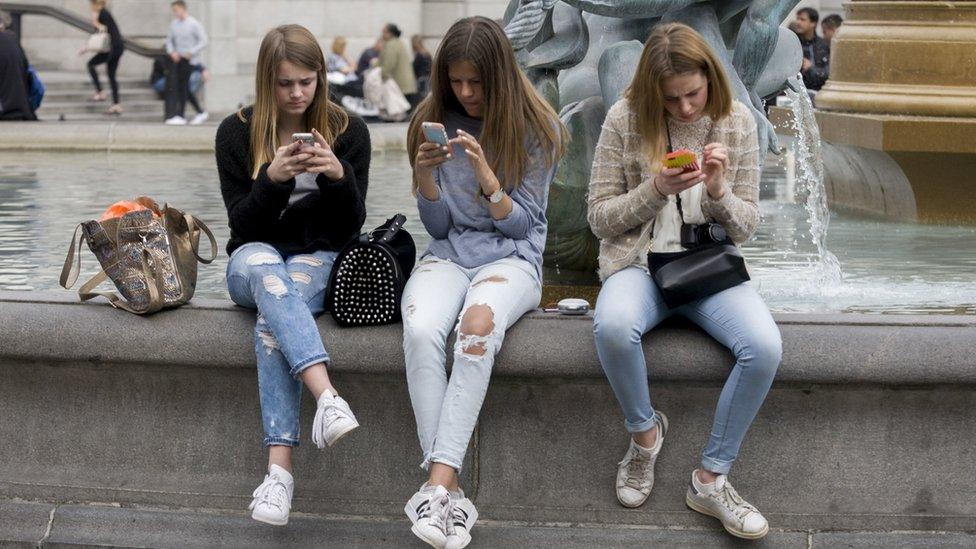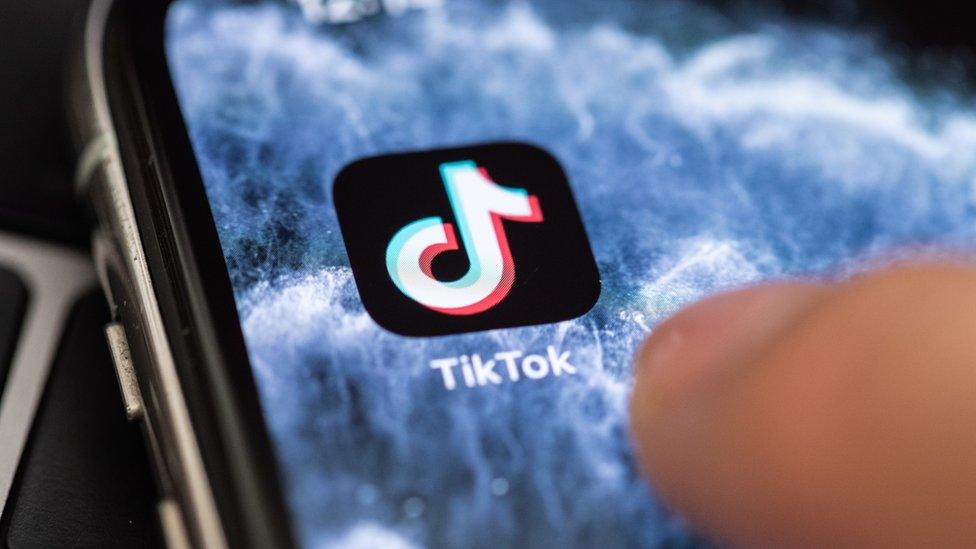TikTok blasts 'copycat' Facebook as US starts probe
- Published

Caught between nations: Chinese-owned TikTok faces a US investigation
TikTok has launched a direct attack on Facebook, accusing it of being a "copycat" and trying to end TikTok's presence in the US under the guise of patriotism.
It comes as TikTok, owned by Chinese firm ByteDance, faces fresh scrutiny.
US Treasury Secretary Steve Mnuchin said TikTok was now being reviewed over national security concerns.
Meanwhile, Facebook and other big tech firms are due to defend their practices in front of the US Congress.
Facebook's Mark Zuckerberg will join Sundar Pichai from Google, Apple's Tim Cook and Amazon's Jeff Bezos to answer questions from politicians on Wednesday.
TikTok has long battled allegations that it is too close to the Chinese state - something it fiercely denies.
Announcing the review, Secretary Mnuchin said TikTok was being investigated by the Committee on Foreign Investment in the United States (CFIUS), which examines commercial transactions for national security concerns.
He did not say if it was linked to ByteDance's purchase of the Musical.ly app, which Reuters previously reported was being looked at by CFIUS.
A recommendation would be made to President Donald Trump this week, he said. Mr Trump separately said that his administration was "thinking about" making a decision on the app later this week.
It came shortly after TikTok published a firmly worded defence of its role in the United States.
'Not the enemy'
Chief executive Kevin Mayer said, external that while big firms "rightly" come under scrutiny, "we have received even more… due to the company's Chinese origins".
He went on: "TikTok has become the latest target, but we are not the enemy".
He also took direct aim at Facebook, writing off its new Instagram Reels feature as a TikTok clone.
WATCH: Will TikTok be banned?
Much like Tiktok, the app is focused on short-form ephemeral video.
"Facebook is even launching another copycat product, Reels (tied to Instagram), after their other copycat Lasso failed quickly," Mr Meyer's statement said.
Lasso had been referred to as "a TikTok clone" by media outlets for its similarities, but was shut down in July.
Mr Meyer also defended the cultural impact of TikTok, and warned that without his firm, American advertisers would be left with fewer options.
A repeated theme was that TikTok was good for competition. Without it, he wrote, "competition would dry up and so too will an outlet for America's creative energy".
He also insisted the company had no political leanings or agenda.
This is not the first time TikTok has faced trouble. It was recently banned in India amid heightened tensions between that country and China.
A lawsuit filed in December alleged that TikTok sent "vast quantities" of user data back to mainland China - something the company denies.
US politicians have frequently criticised the social network, with Secretary of State Mike Pompeo warning it may be banned.
When asked if he would recommend downloading it, he replied: "Only if you want your private information in the hands of the Chinese Communist Party."
- Published7 July 2020

- Published3 December 2019

- Published19 July 2020
